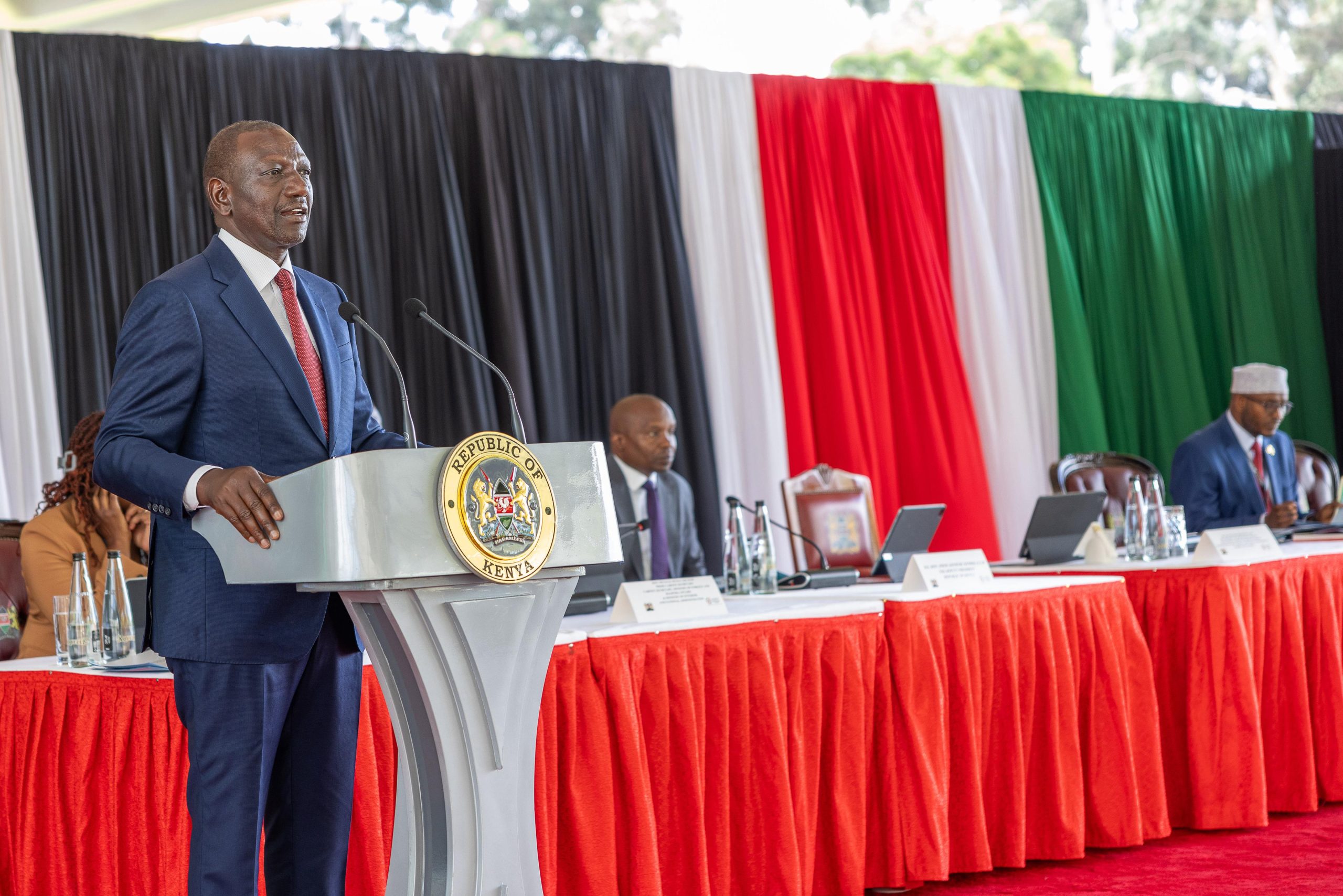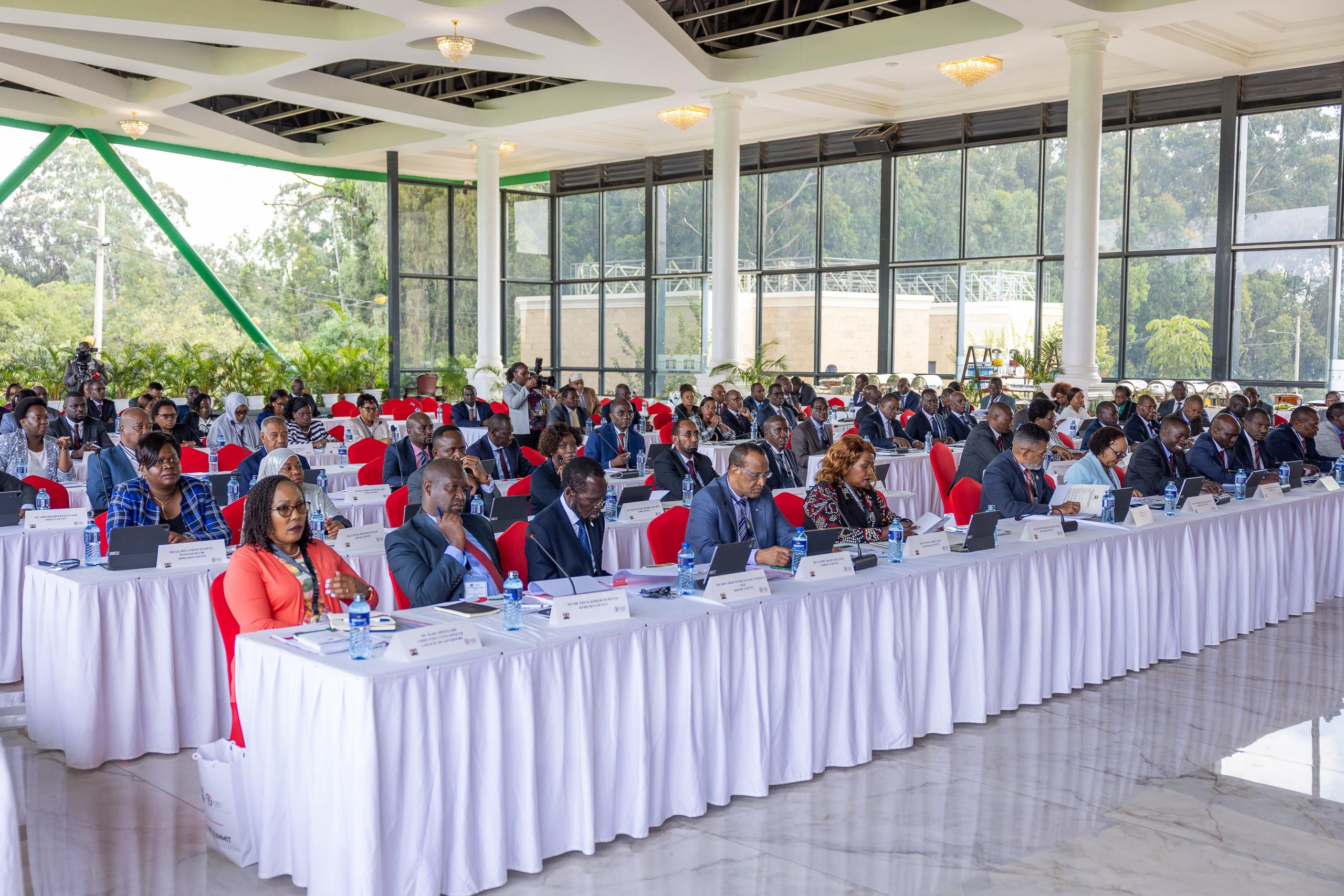
Ruto directs budget transfers to support devolved functions – KBC
The transfer of county functions from the National Government has gained momentum following the gazettement of several roles.
President William Ruto directed that necessary funds accompany these functions in the next financial year beginning July 2024.
Speaking during the 11th National and County Governments Coordinating Summit at State House Nairobi on Friday, President Ruto emphasized the importance of aligning resources with devolved responsibilities to ensure effective service delivery.
The Inter-Governmental Relations Technical Committee (IGRTC), which is mandated to foster cooperation between the two levels of government, conducted the unbundling of functions.
“I now direct the committee to systematically identify and transfer the requisite budgetary and other resources tied to these functions in the next fiscal year,” the President said.

Addressing fiscal challenges, President Ruto reiterated his administration’s commitment to devolution despite constraints within the national fiscal framework. He attributed the limitations to inherited economic vulnerabilities and incomplete implementation of devolution.
“This challenge cannot and should not be mistaken for a lack of commitment to devolution. Rather, it is a temporary difficulty,” Ruto noted, urging harmonious inter-governmental relations to drive the national socio-economic transformation agenda.
The President pledged regular engagement and consultation with county leadership to align strategic agendas, emphasizing that the interdependence of both levels of government requires cooperation.
“While the two levels of government are distinct, they are also interdependent. Our relationship must be built on consultation and collaboration,” he said.
President Ruto also called on ministries, departments, and agencies to expedite dispute resolution through alternative mechanisms to avoid delays, reduce costs, and promote trust. He praised IGRTC’s efforts to resolve disputes before they escalate.
He highlighted successful collaborations between National and County governments in key priority areas, including food security, affordable housing, MSMEs, manufacturing, universal healthcare, and digital adoption.
“To achieve these goals, we agreed to collaborate in supporting strategic programmes that lower the cost of living, create jobs, and accelerate inclusive economic growth,” the President added.
Ruto noted that the economy has shown signs of recovery, with inflation falling to a historic low of 2.8%, a strengthened currency, and robust foreign exchange reserves.
However, he pointed out key challenges that require urgent attention: high public debt, pending bills, unsustainable wage bills, and inefficiencies in revenue collection.
“To address these constraints, unity of purpose and sustained collaboration between National and County governments is essential,” he said.
On healthcare, President Ruto expressed confidence in overcoming operational challenges associated with the redesigned universal health coverage strategy, Taifa Care. He acknowledged hurdles in the transition to the Social Health Insurance Fund and Social Health Authority but remained optimistic.
“For the record, the scale, boldness, and ambition of Taifa Care are unprecedented, and we are confident that the challenges will be resolved soon,” he said.
Deputy President Kithure Kindiki underscored the role of devolution in decentralizing resources and decision-making to bring services closer to the people.
“Our convening here is in line with what is expected of us to ensure devolution works,” Kindiki said.
Council of Governors Chairperson Ahmed Abdullahi echoed the sentiments, noting that devolution has proven that sustainable development stems from the grassroots.
“We must continue on this path to give governance a human face and ensure decision-making remains close to the people,” he said.
